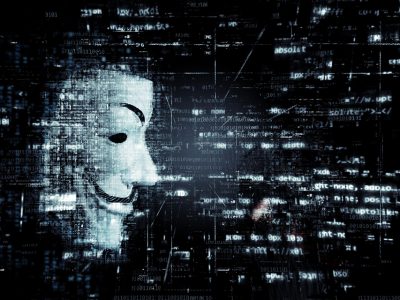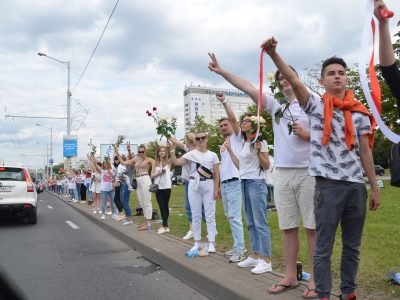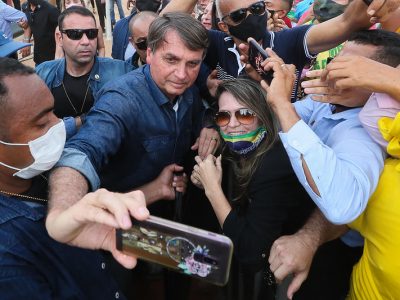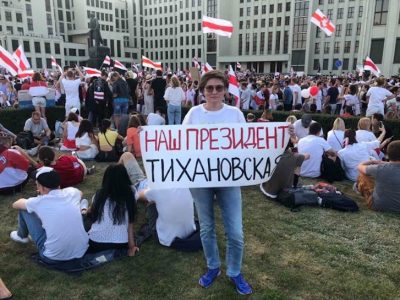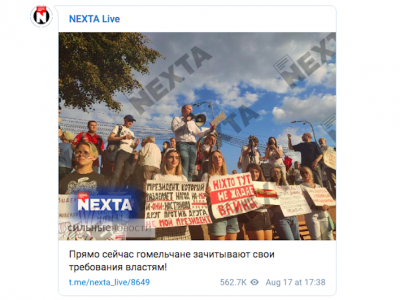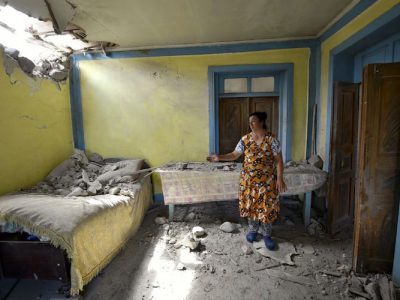Stories about Digital Activism from August, 2020
Anonymous group hack reveals hidden government data about COVID-19 cases in Nicaragua
The hack revealed a surplus of 6,245 positive COVID-19 cases in Nicaragua that were previously unknown to the public.
Disinformation about Belarus spreads in the Balkans via online portals and social media
Fact-checkers from Serbia and North Macedonia have been detecting and countering disinformation favoring the authoritarian regime in Belarus in the mold of previous propaganda narratives from pro-Kremlin troll armies.
President Bolsonaro flooded with questions on social media about unexplained deposits into his wife's bank account
Why, a reporter asked the Brazilian president, was nearly US$16,000 deposited into the bank account of Bolsonaro's wife, Michelle, by their long-time acquaintance Fabrício Queiroz?
Why women’s rights and digital rights go hand-in-hand on Namibian Twitter
In Nambia, a Twitter campaign to legalize abortion drew waves of attacks against feminist activists, but as a result, parliament has agreed to discuss Nambia's outdated abortion laws.
Here's why this feminist philosopher has high hopes for Belarus’ protests
For the feminist and political philosopher Olga Shparaga, the protests in her country offer a chance to develop new solidarities and forge a feminist agenda for Belarus' future development
‘Concerned IT specialists’ launch database of detained Belarusian protesters
Since August 9, over 7,000 people have been detained in mass protests against the Belarusian government. A new database provides their names and locations — in a bid to get them home safely.
How one Telegram channel became central to Belarus’ protests
A channel on the Telegram messeng er service run by four Belarusian journalists in Poland has become a crucial source of information on the political upheavals in their homeland
After its general election, Trinidad & Tobago's racist underbelly is showing
In a racially heated post-election climate, blogger Amilcar Sanatan advises being "brave enough to call out what is wrong" in order to build a more just and equal society.
An earthquake shook Tanzania. A new law prohibits citizens from speaking about it online.
Revised online content regulations in Tanzania prohibit talking about pandemics, natural disasters or politics without government approval. Is it possible to control essential online conversations? If so, at what cost?
‘This is a partisan movement of a partisan nation': a Belarusian poet reflects on her homeland's turmoil
"The greatest weakness made visible in these past months has been how little the state knows its own people," says poet Valzhyna Mort
How a bad translation of ‘Black Lives Matter’ ended up enabling racist narratives on Chinese social media
A popular Chinese translation of the anti-racism protest slogan is paradoxically being used to spread racist discourse.
Meet the artist embroidering Belarus’ protests
From faraway Prague, the Belarusian artist Rufina Bazlova is paying homage to the protests in her homeland by depicting them in traditional Belarusian embroidery.
Belarus shuts down internet as thousands protest election results
As Alexander Lukashenka won a sixth consecutive term as president on August 10, Belarusians across the country faced difficulties getting online. Digital rights activists blame the authorities; the authorities blame foreigners.
How the murder of musician Hachalu Hundessa incited violence in Ethiopia: Part I
In the wake of musician Hachalu Hundessa's murder, Ethiopia has struggled to come to terms with the violence and turmoil that erupted along ethnic and religious faultlines.
‘Wiki Loves Africa’ 2020 features images of a continent on the move
"Wiki Loves Africa," encourages people to contribute Africa-relevant media to Wikimedia annually around a particular theme to fundamentally change how people both within and outside Africa see the continent.
In the age of misinformation, who holds the power to categorize the ‘truth'?
Over time, the categorization of information can result in the dominance of a single world view, making platforms like Facebook, Twitter and Google the central arbiters of truth.
Digital rights remain under threat in Malawi despite historic win for democracy
Will the change in the country's leadership bring about meaningful changes to ensure that Malawians enjoy human rights in the digital space?
As Armenians and Azerbaijanis clash worldwide, activists petition for peaceful dialogue
When fighting on the Armenia-Azerbaijan border killed 17 people, violent clashes broke out between the diasporas of both countries worldwide. That enmity could close the one avenue for grassroots dialogue, warn activists.
New Facebook Oversight Board must remove content of notorious Sudan militia
“Despite the harrowing violations, the RSF maintains a presence on social media, most notably Facebook, which has been the main platform for this militia to spread its messages …”

